Indonesia, Malaysia
Fertile ground for evangelism to Muslims
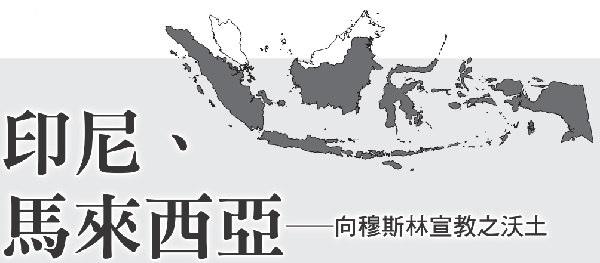
Whenever we talk about Muslims, the Middle East always comes to our mind. In fact, 35% of the world's Muslims are in South Asia, 18% in Southeast Asia, and only about 15% in Central Asia and the Middle East. In Southeast Asia, Indonesia and Malaysia not only have a large number of Muslims, but also millions of overseas Chinese, as well as quite prosperous Chinese churches. Therefore, when it comes to preaching to Muslims overseas, India and Malaysia should be the first choice areas for Chinese churches.
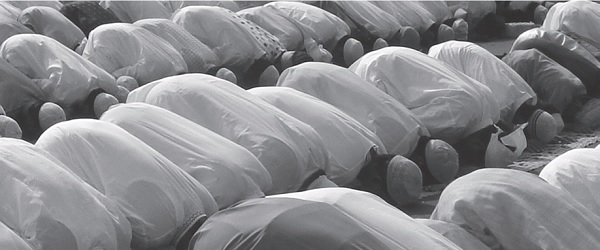
▲Jesus also loves Muslims in India and Malaysia. *
Indonesia - the only Islamic country with religious freedom
How many Muslims are there in Indonesia? The difference is statistically significant. The commonly seen figures, which are also statistics from Indonesian officials and the Muslim world, are that 85% of the Indonesian population are Muslims, with a population of about 190 million. However, according to strict religious standards, only 54% of Indonesia's orthodox Muslims number about 122 million, and there are nearly 70 million who belong to the Islamic folk religion (Folk Islam). Therefore, based on the former higher figure, Indonesia can boast of being the largest Muslim country in the world. But if the latter's more conservative estimate is adopted, Indonesia can only rank fourth in the Islamic world.
Most of these numerous Islamic folk religionists are non-Malay aborigines. Their beliefs are mixed with many superstitions of primitive religions such as spirit worship, and they have also become priority targets for missionary missions. Over the past hundred years, Western missionaries have produced fruitful results among them.
The introduction of Islam to Indonesia can be traced back to the Arab traders who followed the "Spice Road" (called the "Maritime Silk Road" by the Chinese) in the seventh century. But Islam really took root in Indonesia, probably in the thirteenth century. At that time, many Arab merchants settled in Aceh, northwest of Sumatra (the site of the Indonesian tsunami), and established the Basak Empire, the first Islamic country in Southeast Asia. Then through trade, intermarriage and even force, Islam was spread to Malacca, Java, the Philippines and other places. So to this day, Aceh people are not only proud to have Arab ancestry, but they are also the birthplace of Islam in Southeast Asia.
However, the abortive communist coup that occurred in Indonesia in 1966 and the subsequent military dictatorship of Suharto had a significant impact on the religious situation in Indonesia. In order to prevent the atheistic Communist Party from causing chaos, Suharto ordered Indonesians to choose one of the four major religions (Islam, Christianity, Catholicism and Buddhism), otherwise they would be charged as members of the Communist Party. As a result, six million more Christians came overnight, many of them Chinese.
Suharto also ordered a ban on Chinese-language printed matter and Chinese-language schools to prevent the infiltration of the Chinese Communist Party. As a result, almost all Chinese in Indonesia under the age of 50 do not understand Chinese. However, the 40-year interruption of Chinese education has greatly impacted Buddhism and traditional Chinese religion among Indonesian Chinese, and the younger generation has turned to Christianity. So far, 70% of the more than five million Chinese in Indonesia claim to be Christians. At the same time, very few overseas Chinese in Indonesia believe in Islam because they will be rejected by the overseas Chinese community and not accepted by Indonesian Muslims.
Suharto's resignation in 1998 caused political turmoil, such as anti-Chinese riots and religious conflicts between ethnic minorities and the Malays. By 2004, after the current President Yudhoyono Yudhoyono was elected, the situation improved greatly and became relatively stable.
From a missionary perspective, Indonesia has many strengths and challenges worth noting:
1. Indonesia is the only Islamic country with religious freedom.
When Suharto was in power, although he was partial to Islam, the constitution clearly provided for the protection of religious freedom. Indonesia, like Malaysia, does not prohibit Malays from converting to other religions in its constitution. Therefore, in the entire Southeast Asia, the only place where the Malay church has public gatherings is in Indonesia. Therefore, Indonesia can be used as a missionary base to evangelize the Malay ethnic group (including the Philippines).
2. Learning Chinese is a trend in Indonesia. You can use your identity as a Chinese teacher to serve in Indonesia.
After the Chinese language ban was lifted in 1998, the Indonesian government allowed overseas Chinese schools (many of which were missionary schools) to teach Chinese. Even in order to allow the younger generation of Indonesia to catch up with the boom in trade with China, the government is also offering Chinese courses in various public schools. A few years ago, the Indonesian Minister of Education claimed that he would recruit 80,000 Chinese teachers! Therefore, those who are interested in missionary work in Indonesia can first obtain Chinese teacher qualifications, and then openly and legally serve in Indonesia as Chinese teachers, just as American missionaries go to China as "foreign teachers" (Editor's note: foreign language teachers) Same as teaching English.
3. Indonesia has shown signs of a great gospel revival in recent years
There are currently between 30 and 40 million Christians in Indonesia, as well as tens of millions of "seekers" or "hidden Christians." In the past ten years or so, more than two million Muslims in Indonesia have believed in Christ. Although this has aroused jealousy and attacks from extremists, we can also see that God is doing wonderful things.
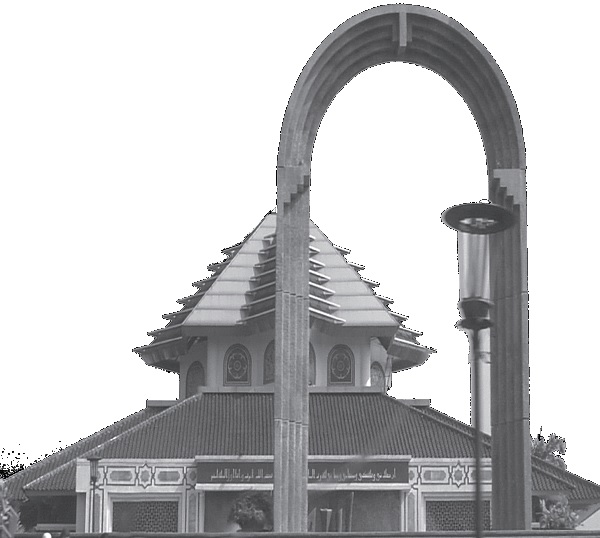
▲The modern-style Indonesian mosque symbolizes a more open faith line?
4. Many Chinese Christians in Indonesia can be recruited as missionaries
There are more than 4 million believers in Indonesia who can speak Malay and are familiar with Islamic culture and religion. Therefore, if one thousandth of them can be recruited to be missionaries, more than 4,000 people with bilingual and bicultural backgrounds can be trained. Missionaries who specialize in evangelizing Muslims around the world. This is an extremely powerful missionary force and an indispensable force for the Chinese church to participate in Muslim missionary work.
5. Restrictions on churches are tightening in Indonesia and violence is increasing.
Over the years, the Indonesian government has gradually increased its restrictions on Christianity, and the violent activities of terrorist organizations such as Jemaah Islamiyah have become more obvious. However, compared to other Islamic countries, Indonesia is considered a relatively moderate area, and the people are generally opposed to violence, so it is a "fertile ground" for the gospel.
Malaysia - a civilized Islamic country
Malaysia is a unique Islamic country. When former Prime Minister Mahathir Mohamad was in office, he claimed to build Malaysia into a "model of a civilized Islamic country." However, Malaysia's constitution clearly stipulates that Malays are born Muslims and are not allowed to change their faith. Malays also have educational, professional and industrial and commercial privileges. Therefore, basic human rights such as religious freedom and the prohibition of racial discrimination that are upheld by ordinary civilized countries may not be recognized in Malaysia. In this regard, Mahathir calls himself "Asian Values".
Malaysia is divided into east and west parts, with great differences in race, religion and economic status. West Malaysia has a population of about 20 million, with Malays accounting for the majority. However, there are great differences among states. In states such as Kedah and Kelantan, Islamic parties are in power. There are very few Chinese and less than 1% of Christians. However, more than 80% of Penang residents are Chinese, and most of them are overseas Chinese from Fujian.
East Malaysia has a vast territory, but its population is only over 8 million, with Malays accounting for less than half. Sabah’s indigenous ethnic groups account for 60% and Sarawak’s 50%. There is a high proportion of Christians among the indigenous ethnic groups, and the proportion of Christians among the Chinese in East Malaysia is much higher than that in West Malaysia. Therefore, the number of Christians in these two states is as high as 28% and 42% respectively.
Although Malaysia gives Muslims many privileges, surveys show that very few Chinese convert to Islam. Only 0.4% of the Chinese in Indonesia are Muslims, and only 1% in Malaysia. A small number of Chinese Muslims in Malaysia are Chinese Hui immigrants; most of them had to convert to Islam because they wanted to marry Malay women or to obtain economic benefits (relief funds) and privileges, which caused even more Malay human contempt. As long as the Chinese believe in Islam, they will be immediately expelled from overseas Chinese communities and hometown associations. This has created resistance for Chinese people to convert to Islam.
There are more than six million Chinese in Malaysia, 9.6% of whom are Christians, while the proportion of Chinese Christians in East Malaysia is higher. This is because a hundred years ago, Huang Naishang of the Methodist Church in Minqing County, Fujian, China, led more than a thousand Fuzhou believers to Sarawak to open up wasteland, so that every village had a church. In addition, Li Xiangguang, the preacher of the Hong Kong Zhongzhen Association (Pakse Association), also recruited hundreds of Cantonese Hakka believers to pioneer in Sabah, so most of the Hakka Chinese in Sabah are Christians. This is China’s version of the “Puritan evangelical immigration” model.
From a missionary perspective, Malaysia also has its own special advantages and challenges:
1. East Malaysia is suitable for establishing a missionary training center
The proportion of Christians in East Malaysia is the highest in Asia, even surpassing South Korea. This is an advantage that cannot be ignored. At the same time, there are many aboriginal ethnic groups in East Malaysia. If the environment of East Malaysia can be used to establish a non-denominational and inter-ethnic missionary center, missionaries of different ethnic groups and languages can be trained for Southeast Asia and come to Indonesia. , Bangladesh, Philippines, Brunei and other places to carry out missionary work.
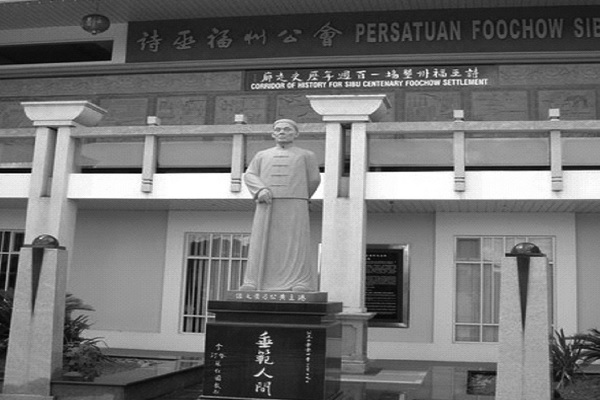
▲The statue of Wong Nai Sang, the pioneer of Sarawak. A hundred years ago, he led more than a thousand Fuzhou believers to open up wasteland here, so that there were churches in every village.
2. Can target foreign workers from Indonesia and Bangladesh.
Due to its booming economy, Malaysia has introduced many foreign workers. Among them, Indonesians are the largest group of Malay-speaking people, with about 2 million people, followed by 400,000 Nepalis and 300,000 Bangladeshis. Most of these foreign workers are Muslims, but because they are not Malaysian citizens, they are theoretically not included in the constitution's prohibition on proselytizing. If we can serve these foreign workers wisely, we may be able to bear a lot of fruit. Over the years, Taiwan has led dozens of Indonesian foreign workers to be baptized despite very poor conditions. I firmly believe that this should be a promising ministry in Malaysia. Some foreign workers who believe in the Lord can even be trained in mission centers in Malaysia and then sent back to their hometowns to establish churches.
3. Establish a platform for religious dialogue
Although evangelism to the Malays is prohibited in Malaysia, religious dialogue is allowed in academic circles. The Malaysian government sends more than 100,000 students to study abroad in Middle Eastern countries every year, including studying Islam. Therefore, Malaysia’s educational and cultural level is very high, and it may be the most suitable place for religious dialogue in Southeast Asia.
Conclusion
Preaching the gospel to Muslims is considered by many to be "Mission Impossible." But don’t forget: with the help of the Holy Spirit, the early church spread the gospel widely among the hostile Jews; the fall of the Berlin Wall twenty years ago instantly opened the doors of the Iron Curtain countries, and the gospel began to flow in again. These historical lessons remind us that nothing is impossible for God. Therefore, on the one hand, we need to be as clever as snakes and as gentle as doves; on the other hand, we must have a fearless spirit and treat ourselves like a grain of wheat, willing to be buried in the ground and die, so that we can bear many fruits.
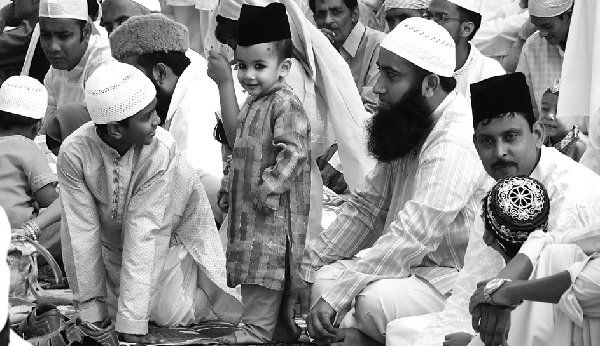
▲The lessons of history remind us: Nothing is impossible with God. Preaching the gospel to Muslims is Mission Possible. *
 Author profile
Author profile
Pastor Zhuang Zukun, after graduating from National Taiwan University in 1970, received a doctorate in chemical engineering from Northwestern University in Chicago in 1983. He was the department director of the Chemical Engineering Institute of the Taiwan Institute of Technology.
Later, in response to God’s call, he resigned from his high-paying job and went to the United States to study theology again. In 1995, he received a Doctor of Philosophy degree in Cultural Studies (Missiology) from Trinity Theological College.
He is currently the senior pastor of the Church of Truth in Boston, and he and his wife, Mrs. Liu Zhenguang, established the "True Light Association" to serve by recording a series of Bible exegesis and various special lectures on DVD. Pastor Zhuang's main works include "Integration and Transformation: Christianity and Chinese Cultural Renewal", "Mission History", "Mission Theology", "Mission and Culture", "Speaking of Zen and Taoism" and "Silk Road and Return to Propaganda", etc.
